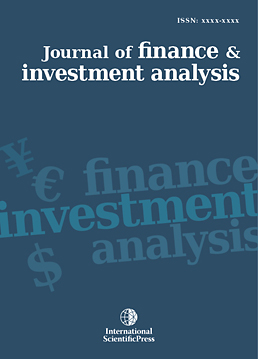Journal of Finance and Investment Analysis
Effect of Heuristic Biases on Capital Structure of Firms listed at Nairobi Securities exchange, Kenya.
-
 [ Download ]
[ Download ]
- Times downloaded: 10002
Abstract
The study sought to find out the effect of heuristic biases on capital structure of firms listed at Nairobi Securities Exchange, Kenya. The study used firm size, profitability, tangibility and growth opportunities as control variables. Regression analysis revealed the following: 59.8% of capital structure could be explained using heuristic bias, firm size, profitability, and tangibility and growth opportunities. The regression coefficient showed that heuristic biases had a negative and significant effect on capital structure (B=-2.814, p<0.05). Firm size had a negative and significant effect on capital structure (B=-0.413, p<0.05). Tangibility had a positive and significant effect on capital structure (B=3.962, p<0.05). However, growth opportunities and profitability had a positive and insignificant effect on capital structure. The F-test depicted that the model was significant (p<0.05) in explaining changes in capital structure. The study concluded that capital structure of firms is affected by irrational behavior of the managers.
Keywords: Heuristics, capital structure, firm size, profitability, tangibility, growth opportunities.
